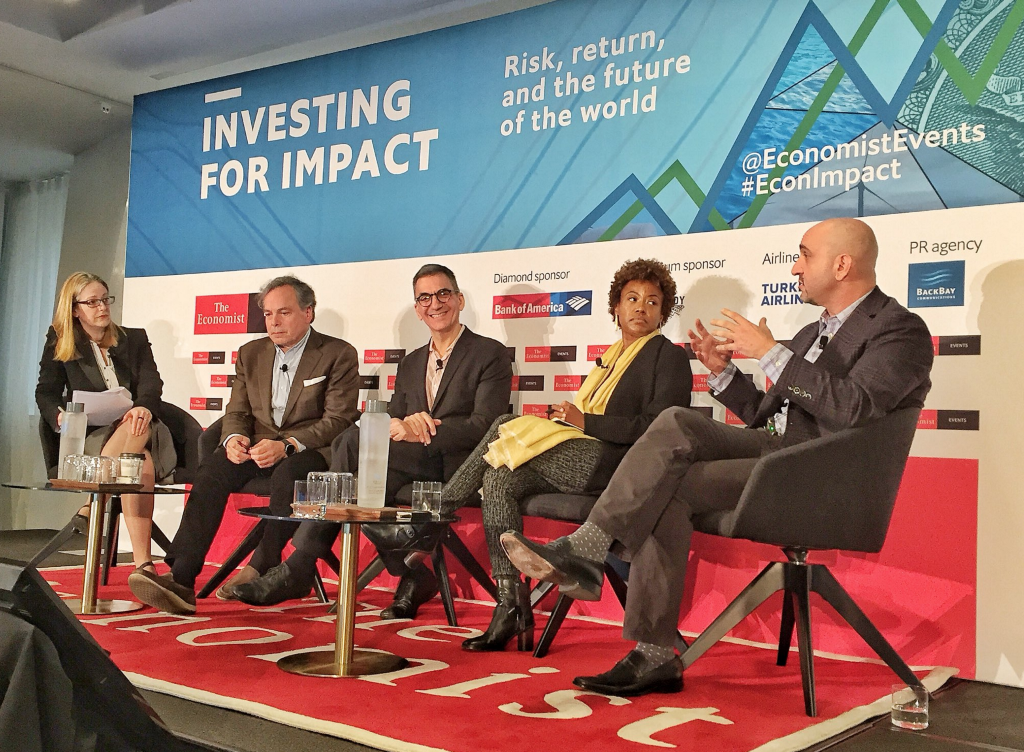Headliners at the magazine’s second annual gathering seemed to find their voice in rebutting stubborn assumptions.
‘Can investors revive the American Dream?’ and other weighty questions of the day
- Pigeonly founder Frederick Hutson was asked why his startup helping families communicate with inmates was an “impact” company and not just good capitalism. “I don’t look like a typical tech founder,” said Hutson, who is African American and was formerly incarcerated. “Before impact investors backed me, mainstream investors wouldn’t give me the time of day.”
- Debra Schwartz, charged with deploying $500 million in program-related investments for the John D. and Catherine T. MacArthur Foundation, didn’t bite when asked if there is a tradeoff between impact and return. “We’re not here to prove there’re no tradeoffs,” Schwartz said. “We want to know where they are, why they’re needed and what levers to pull.”
- Liesel Pritzker Simmons, who leads the $500 million Blue Haven Initiative family office, said there’s no contradiction between investing in women and maximizing shareholder value. “If you want to maximize shareholder value, you better be having this discussion.”
- Village Capital’s Ross Baird challenged the premise of a question about whether impact investing is going mainstream. Even Henry Ford tried to create good-paying jobs in Michigan so workers could buy cars, he said. “We’re getting back to how business used to be.”
- But impact products can’t scale to attract the trillions of dollars needed to finance the sustainable development goals, can they? Yes they can, said Rockefeller Foundation’s Saadia Madsbjerg. There will be products, she said, that “the NGOs can stand behind, that pension funds can put money in and that fund managers can execute.”











